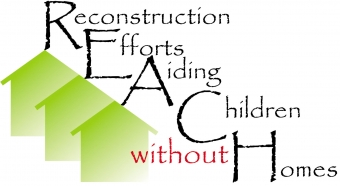- Education Topics
- Achievement Gap
- Alternative Education
- American Education Awards
- Assessment & Evaluation
- Education during COVID-19
- Education Economics
- Education Environment
- Education in the United States during COVID-19
- Education Issues
- Education Policy
- Education Psychology
- Education Scandals and Controversies
- Education Reform
- Education Theory
- Education Worldwide
- Educational Leadership
- Educational Philosophy
- Educational Research
- Educational Technology
- Federal Education Legislation
- Higher Education Worldwide
- Homeless Education
- Homeschooling in the United States
- Migrant Education
- Neglected/Deliquent Students
- Pedagogy
- Sociology of Education
- Special Needs
- National Directories
- After School Programs
- Alternative Schools
- The Arts
- At-Risk Students
- Camps
- Camp Services
- Colleges & Universities
- Counties
- Driving Schools
- Educational Businesses
- Financial Aid
- Higher Education
- International Programs
- Jewish Community Centers
- K-12 Schools
- Language Studies
- Libraries
- Organizations
- Preschools
- Professional Development
- Prom Services
- School Assemblies
- School Districts
- School Field Trips
- School Health
- School Supplies
- School Travel
- School Vendors
- Schools Worldwide
- Special Education
- Special Needs
- Study Abroad
- Teaching Abroad
- Volunteer Programs
- Youth Sports
- For Schools
- Academic Standards
- Assembly Programs
- Blue Ribbon Schools Program
- Educational Accreditation
- Educational Television Channels
- Education in the United States
- History of Education in the United States
- Reading Education in the U.S.
- School Grades
- School Meal Programs
- School Types
- School Uniforms
- Special Education in the United States
- Systems of Formal Education
- U.S. Education Legislation
- For Teachers
- Academic Dishonesty
- Childcare State Licensing Requirements
- Classroom Management
- Education Subjects
- Educational Practices
- Interdisciplinary Teaching
- Job and Interview Tips
- Lesson Plans | Grades
- Professional Development
- State Curriculum Standards
- Substitute Teaching
- Teacher Salary
- Teacher Training Programs
- Teaching Methods
- Training and Certification
- For Students
- Academic Competitions
- Admissions Testing
- At-Risk Students
- Career Planning
- College Admissions
- Drivers License
- Educational Programs
- Educational Television
- High School Dropouts
- Higher Education
- School Health
- Senior Proms
- Sex Education
- Standardized Testing
- Student Financial Aid
- Student Television Stations
- Summer Learning Loss
Home | National Directories | Volunteer Program | REACH (Reconstruction Efforts Aiding Children without Homes) |
REACH (Reconstruction Efforts Aiding Children without Homes)

Basic Information
Address: PO Box 4141, Winchester, VA 22604
Email: contact@reach4children.org
Director: Peggy Doerwaldt
Additional Information
Causes Served: children, impoverished
Population Served: poverty-stricken children internationally
Ages for Volunteer: 18 and older, under 18 must have chaperone
Minimum Hours Required: one week
Days of Service: one full week
Mission Statement:
REACH (Reconstruction Efforts Aiding Children without Homes) brings environmentally friendly and sustainable buildings, which includes new schools, homes and other applicable buildings to children affected by natural disaster, poverty, and war around the world through a collaborative partnership made up of the beneficiary, architectural design team, funding partners, environmentally friendly building system & material manufacturers all of which is organized under the unique opportunity for anyone or group to travel abroad to participate in the construction of the project under our Voluntourism Program.
Program History:
Tsunami REACH was created in March 2005 as part of the corporate social responsibility program initiated by Donald A. Stevens, founder and President, STUCC ON STEEL Building System, LLC of Virginia. Recognizing the tremendous need for quality housing solutions in the tsunami affected areas of Southeast Asia, STUCC ON STEEL wished to share, free from profit, its environmentally friendly, affordable and durable housing technology with those organizations, companies and governments charged with reconstruction activities following the 2004 Southeast Asian Tsunami.
With successful projects delivered in Sri Lanka and due to ongoing civil unrest in the region that has restricted continued activity, Tsunami REACH founders wish to redirect its resources while continuing to focus on the needs of homeless, orphaned children. Therefore, Tsunami REACH intends to reconstitute itself as to REACH (Reconstruction Efforts Aiding Children without Homes) and develop strategic alliances with corporations, universities and non-profit professional organizations to continue its work, delivering worthy projects to communities that are predominantly in the western hemisphere. Furthermore, REACH intends to create an enhanced program that will allow more individuals and groups to take part in the construction of the projects.
Events:
Voluntours occur around United States nationally recognized holiday weeks, such as "Winter Break" or "Spring Break."
Additional Information:
www.reach4children.org will give our events and our voluntour dates available.



